Let us assume that most of us have heard about HEPA filters till now. Be it in relation to HVAC/AC or air purifier or vacuum cleaner, you might even be using them inside your home. But the question here is, how much do you know about it. Have you just heard about or do you have some general knowledge about it as well? Do you have doubts or questions about it that you want answers for? If that is the case and you want to know more about these HEPA filters that are all the buzz nowadays, keep scrolling down. We have prepared a list of questions and their answers to help you know all about the HEPA filters.
What is a HEPA filter?
HEPA means “High-Efficiency Particulate Air” filter. These filters are made of fiberglass or synthetic material which are tightly aligned together to create a mesh. HEPA filters are the ones that can capture particles that are up 0.3 microns in size, with an efficiency of 99.97%. These are used for residential as well as commercial purposes and are mostly preferred in factories, labs, and hospitals. HEPA filters are highly capable of cleaning the air and making it healthier to breathe.
Some recommended filters for air purifiers:
- LEVOIT Air Purifier Replacement Filter
- Germ Guardian FLT4825 HEPA GENUINE Air Purifier Replacement Filter
- Philips AC1215 1000 Series Activated Carbon Filter
- Mi Air Purifier HEPA Filter
Where are HEPA filters used?
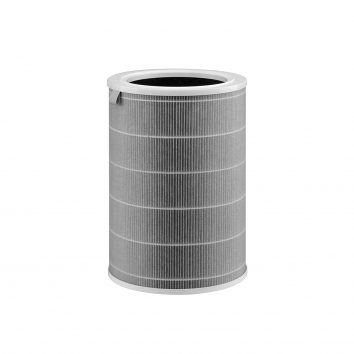
HEPA filters are used for contamination control meaning, they help in controlling dust, dirt, bacteria, viruses, and other micropollutants. Initially, HEPA filters were intended to be used in factories, hospitals, labs, etc. But now, these filters are used for commercial and residential purposes as well. HEPA filters keep the indoor air cleaner and healthier, relieving allergies and asthma issues. Some of the consumer products that these filters are used in include air purifiers, HVAC/AC, Vacuum cleaners, and vehicles.
HEPA filter vs Other filters
The larger pollutant particles present in the air can be captured by almost every type of air filter. But, the smaller particles often go unfiltered in most of the filters. A HEPA filter comes as a savior here. These filters are capable of trapping even microparticles up to the size of 0.3 microns. HEPA filters have an efficiency of 99.97% when it comes to air filtration. Other types of air filters like fiberglass, electrostatic, pleated filters, etc. are very commonly used in HVAC/AC but, for HEPA filters to be used in these systems you will need to modify the equipment. Therefore, HEPA filters are rarely used in cooling/heating systems that are installed in residential buildings.
Best HEPA vacuum cleaner filters recommended for you:
- Kenmore 53294 Style O HEPA Cloth Vacuum Bag
- Atrix – VACBP610P Vacuum Filter
- EnviroCare Replacement HEPA Vacuum Cleaner Filter
When to replace a HEPA filter?
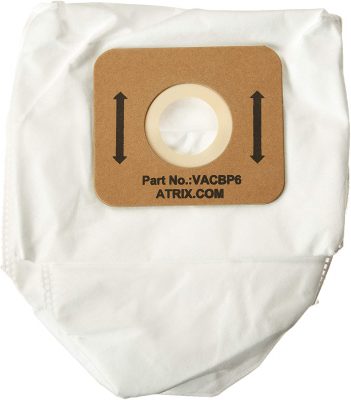
When used in residential buildings, HEPA filters can last for 2 to 3 years of regular use. But, when used in commercial buildings, HEPA filters need to be checked every six months. Even if you are using a HEPA filter in your home for your HVAC/AC, air purifier, or vacuum cleaner, check the filter once every six months. If the filters are too dirty or damaged in any way, you need to clean or replace them as soon as possible. In case you keep using your appliances with a dirty filter, the pollutants will get mixed with the air inside your home. It will result in decreased air quality and risk of health issues.
Can I clean or wash HEPA filters?
Yes, if you are using a HEPA filter in any of your home appliances, you can clean or wash them when they are dirty. However, the cleaning should be done very carefully so that the filter is not damaged in the process. A HEPA filter can be cleaned and reused multiple times.
How to clean HEPA filters?
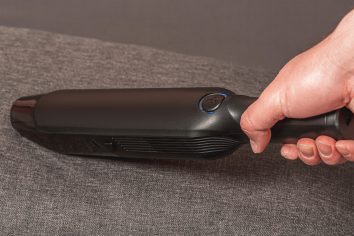
The cleaning process of a HEPA filter depends on the type of HEPA filter you are using. For cleaning purposes, a HEPA filter can be divided into two categories i.e., permanent filter, and washable filter.
The washable HEPA filter can be cleaned by putting it under cold water. Just remember not to touch the filter with your hands. Always read the instruction manual that comes with the filter to make sure you clean it the right way, without causing any harm to it.
The permanent HEPA filters can be cleaned by using a vacuum cleaner. Never use water for cleaning a permanent filter. Keep the vacuum at a proper distance to suck off the dust and debris from the filter. Follow the cleaning guidelines mentioned in the manual that came with it.
Can HEPA filters capture nanoparticles?
Yes, HEPA filters can capture nanoparticles meaning particles that are as small as 0.01 microns. It means that HEPA filters can trap virus-sized particles, even the Covid-19 virus. Combining the HEPA filter with an activated carbon filter is the best way to get rid of maximum pollutant particles and get clean air inside your home.
Can HEPA filters release dirty particles back into the air?
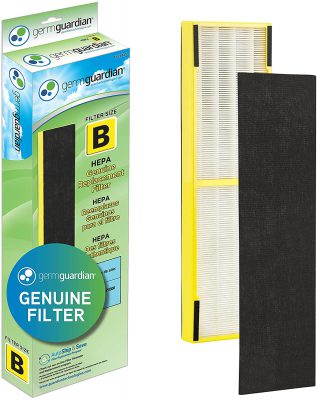
When the HEPA filters get dirty and clogged, they can release a small number of dirty particles back into the air. But this happens only when the filter gets airflow from the opposite direction and this can only happen if you re-insert the filter in the wrong direction. Remember that an air filter should be handled with care and never reused without cleaning it. However, the amount of pollutants released back is very small and does not pose any health risk. To prevent this, make sure to keep the filters clean and replace them from time to time.
Difference between HEPA and True HEPA
As the HEPA filters became popular, different variations of them have also entered the market such as “HEPA style”, “HEPA like”, and the most common, “True HEPA”. But, it is necessary to remember that these are just the filters that have failed to meet the standard that is required by a filter to become a HEPA filter.
To become a HEPA filter, some criteria must be fulfilled like 99.97% efficiency, ability to trap particles of size up to 0.3 microns, and airtight filter construction. If a filter fails to meet any of these criteria, it can not be called a HEPA filter.
Therefore, when you are looking for a filter, make sure that you get the “HEPA filter” and not the “True HEPA”, which is not what it claims to be.
Loading recommendations...

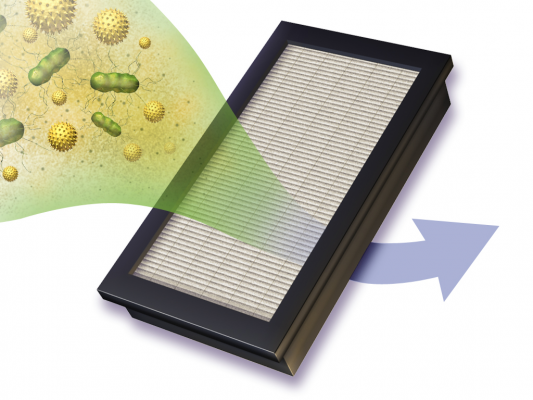
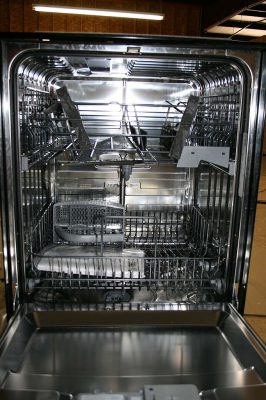
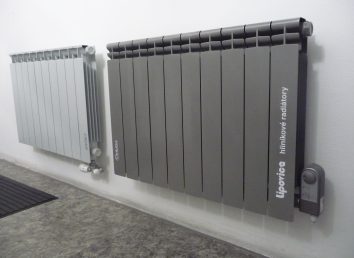
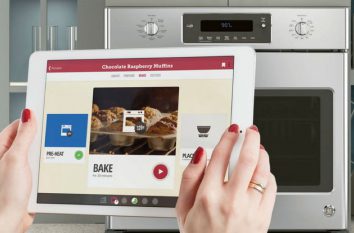
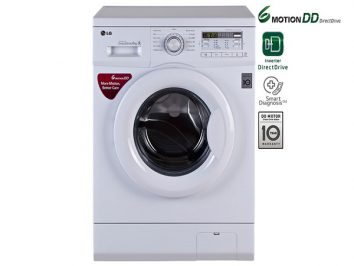
Hey there! If you’re using a HEPA filter in your air conditioning system, here’s a tip that might not be immediately obvious but can make a big difference: consider pairing your HEPA filter with a pre-filter. Pre-filters catch larger particles before they reach the HEPA filter, which can extend the life of your HEPA filter and improve its efficiency. This setup is especially useful in homes with pets, lots of dust, or high pollen counts. Pre-filters are usually inexpensive and easy to replace, making them a cost-effective way to enhance your air quality and protect your more substantial investment in a HEPA filter. Just make sure to check both filters regularly and replace them as needed to keep your air clean and your system running smoothly!
This is a good choice if you want to play a fun game that can also help you boost your speed and teamwork shell shockers
Thank you for sharing this comprehensive guide. By the way, if you made an attempt to use a HEPA filter in your furnace or air conditioner, you’d possibly have trouble getting enough air from the vents. This is because the blower motors of these appliances are not designed to work with such a deep filter. So, be careful with that.
That’s right. HEPA filters are generally not installed on residential AC systems because they inhibit airflow. For this, it’s better to use pleated filters with a MERV rating.